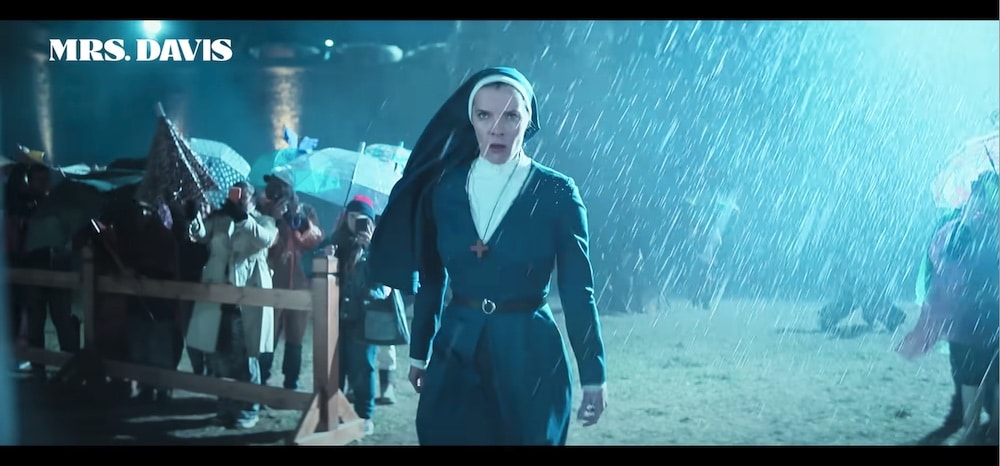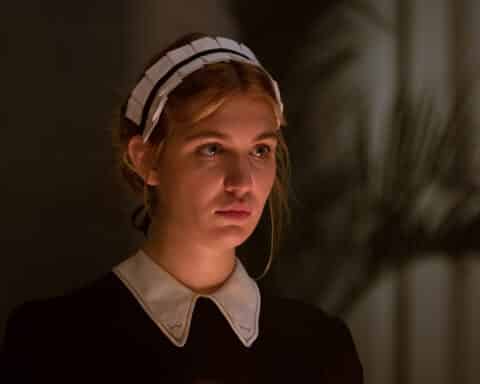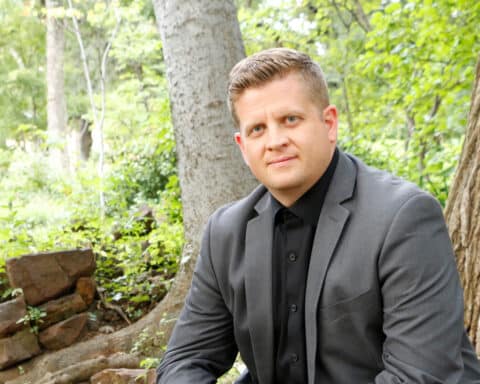As a faithful Catholic who loves popular culture, it is easy to feel like Charlie Brown with the football sometimes. Every time a movie or television show attempts a serious depiction of people living their faith — especially clergy or religious — I think to myself that maybe this will be the time that they get it right. Almost every time, though, the football gets pulled away at the last second, and I am left wondering why I submitted myself to yet another poorly delivered cheap shot at the Church.
The new Peacock show “Mrs. Davis” is an especially disappointing example of this phenomenon, because it starts out with great potential. Betty Gilpin is captivating as Sister Simone, a nun with a sarcastic sense of humor who finds herself thrown into turmoil as an all-knowing, seemingly all-powerful AI algorithm called Mrs. Davis convinces her to go on a quest to find the Holy Grail. The early episodes show Sister Simone struggling with aspects of her personal history and her religious calling but holding the pieces together as she confronts one absurdity after another. It is, at times, uproariously funny, at times shocking and even occasionally poignant.

According to the show’s creators, it is meant to be an exploration of the intersection of faith and technology, which makes it an exceptionally well-timed idea. As ChatGPT and other interactive AI algorithms have suddenly emerged into public awareness and are quickly changing our lives, this is a moment when great storytelling can help us think deeply about what kind of world we are creating for ourselves. However, as Glen Weldon pointed out in his otherwise glowing review of the show for NPR, “Mrs. Davis doesn’t have a lot to say about either religion or tech — they’re just used as anchors to steady the ship in what quickly become some seriously choppy waters.” The show’s real purpose is to play with cliches, turning the idea of the hero quest on its head. And while this is not what the show claims to be about, it might be satisfying as well, if it did not come with a barrage of completely unoriginal and, at times, deeply offensive religious tropes along the way.
All the greatest hits appear in short order. An evil priest? Check. Feckless, shallow criticism of the all-male nature of the priesthood? Check. And, of course, there is the big one (and there is no other way to say it than with a major spoiler, but this deserves to be spoiled): a sexual relationship between Sister Simone and Jesus Christ. Yes, you read that correctly. In the first couple episodes, we find Sister Simone occasionally running off to a small restaurant where a man named Jay, whom she says she is in love with, cooks her falafel and sends her on missions. Eventually, it is revealed that this is where she goes in her mind when she prays, that Jay is Jesus, and that she takes the idea of being a bride of Christ very literally.
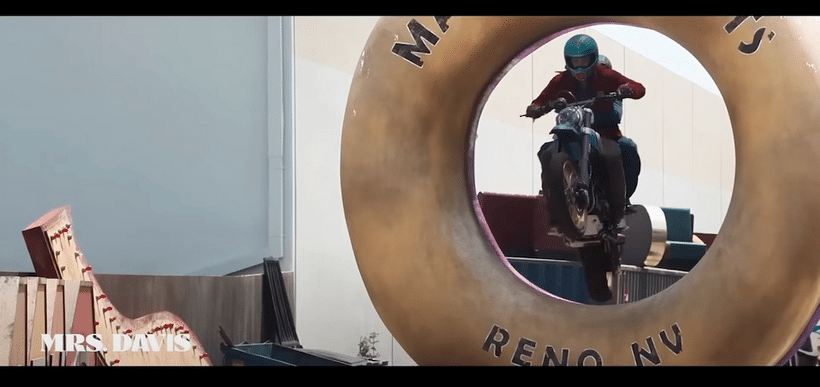
To say just about the only thing that can be said in defense of this, I do not think the show’s creators intended this to be as offensive as it is. They have said in multiple interviews that they wanted to take the idea of faith seriously, and no character in the show is ever mocked for their belief. But when you are not a person of faith trying to write about faith, it is easy to come up with analogies that do not make sense. Showrunner Tara Hernandez told TV Guide, “[In] our own relationships with, whether it’s faith or religion or the Church, it felt like: What is the one thing we can grasp onto that we relate to as people? And that’s love, and love stories.”
It reminds me a bit of when I became a Catholic priest, leaving behind a good living in ministry as a Protestant, and some friends and family assumed that it was a form of career advancement, as if the Church was a larger company offering me a better deal, because that was something they could understand. The sexualized depiction of the relationship between Sister Simone and the Lord is not so much malicious as it is ignorant. People do not understand religious devotion, but they understand sexual desire, so they think that maybe it is a little like that.
The irony is that the real life metaphor is exactly the other way around. Marriage, including sex, is an icon of Christ’s love for the Church not because it satiates our desires but because it transforms them. We are wed to Jesus Christ through his cross. The complete gift of self that Jesus offers us in his death rescues us from our self-centered delusions and makes it possible for us to offer ourselves for our neighbors. When religious sisters and nuns vow to give up marriage and physical motherhood, it is a real sacrifice, at times difficult and even painful, but made for the sake of the world as an outpouring of the spousal love they receive from Christ. Turning that sacrifice into a sexual fantasy cheapens it and robs these women of the dignity and heroism of the gift that they make in accepting their vows.
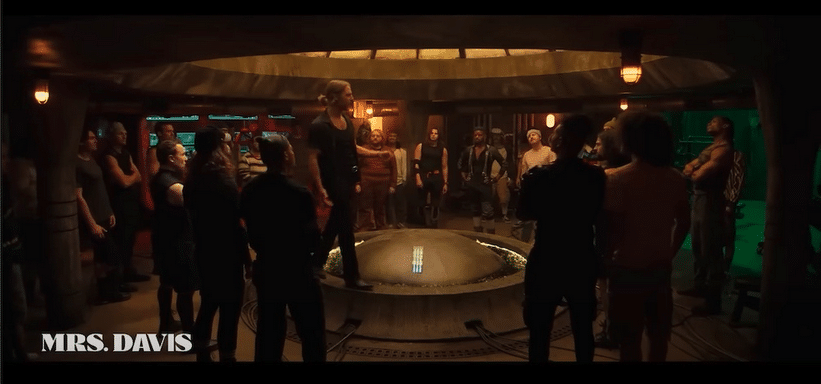
The Jay twist is a poison pill that ruins what might otherwise have been an interesting way of exploring faith. As of this writing, I have seen only the first five of eight episodes of Mrs. Davis, and given what has already come, I have no doubt that there will be more twists and turns, some of which may be better and others that may likely be worse (I have heard the Virgin Mary will be making an appearance, and I am not hopeful about how that will go). But even if it turns out in the end that Jay is not really Jesus or that there is some other explanation for the whole thing, the damage is already done. In an era in which our search for meaning is causing us to give more and more of ourselves over to technology, we need stories that explore the nature of faith and what we might learn from tradition. Unfortunately, Mrs. Davis is not it, and while my optimistic side makes me hope that Hollywood will eventually tell such a story, I strongly suspect we are going to end up flat on our backs a few more times before they finally realize that leaving the football on the field is actually more interesting and satisfying than taking it away.
Father Jonathan Mitchican is a Catholic priest and school chaplain. Follow him on Twitter @frjonathan.

